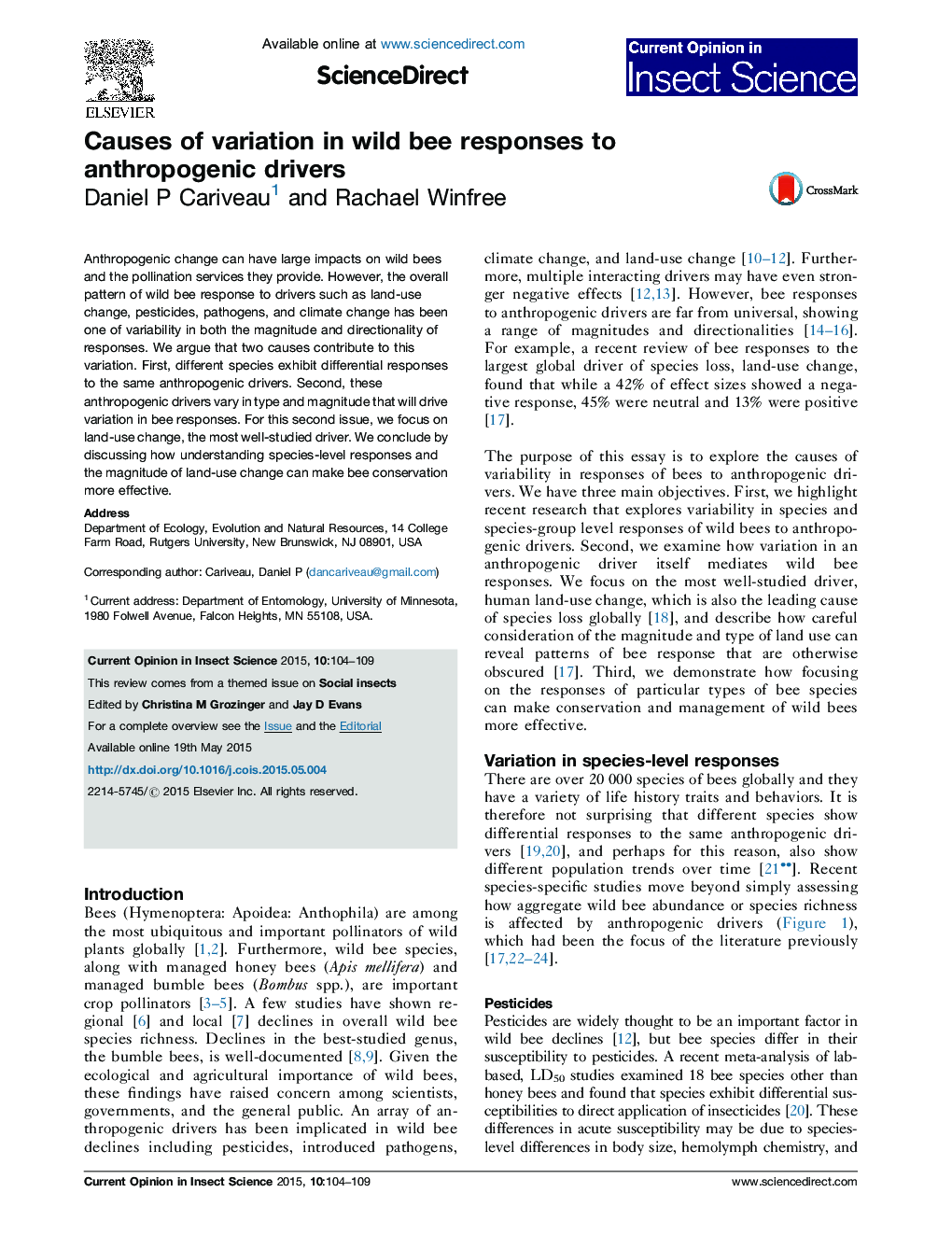| Article ID | Journal | Published Year | Pages | File Type |
|---|---|---|---|---|
| 6374121 | Current Opinion in Insect Science | 2015 | 6 Pages |
Abstract
Anthropogenic change can have large impacts on wild bees and the pollination services they provide. However, the overall pattern of wild bee response to drivers such as land-use change, pesticides, pathogens, and climate change has been one of variability in both the magnitude and directionality of responses. We argue that two causes contribute to this variation. First, different species exhibit differential responses to the same anthropogenic drivers. Second, these anthropogenic drivers vary in type and magnitude that will drive variation in bee responses. For this second issue, we focus on land-use change, the most well-studied driver. We conclude by discussing how understanding species-level responses and the magnitude of land-use change can make bee conservation more effective.
Related Topics
Life Sciences
Agricultural and Biological Sciences
Agronomy and Crop Science
Authors
Daniel P Cariveau, Rachael Winfree,
